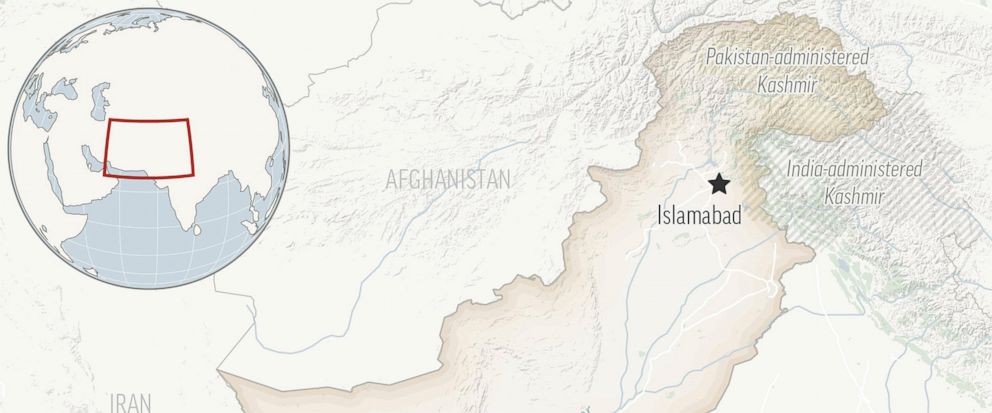
Pakistan has announced that it will not attend the U.S.-led Summit for Democracy this week, a decision that is partly seen as an attempt by the poor Islamic country to appease longstanding friend China, which was not invited.
In a decision viewed in part as an attempt by the poor Islamic country to appease longstanding friend China, which was not invited, Pakistan declared on Tuesday that it would not join in this week’s U.S.-led Summit for Democracy.
120 world leaders have been called by the Biden government to the meeting taking place in Washington on Wednesday and Thursday. The countries of Zambia, South Korea, the Netherlands, and Costa Rica will jointly organize it.
The United States and its co-hosts were praised for the offer by Pakistan’s Foreign Ministry in a statement. Also absent from the first and only other meeting, which took place in December 2021, was Pakistan.
With over 220 million people, Pakistan is the fifth-largest nation in the globe. Although detractors claim Pakistan has one of the worst republics in the world, it does have a functioning democracy.
In order to advance democracy ideals and values, advance human rights, and combat graft, Pakistan would interact directly with the United States and summit co-hosts, according to a statement.
The government of then-Prime Minister Imran Khan and the U.S. administration of President Joe Biden had been at odds for some time, and Pakistan decided not to attend the 2021 summit as a result. Relations between Washington and Khan were further strained when Khan visited Moscow in February 2022 during the Russian invasion of Ukraine.
Khan was removed as prime minister by a coalition of significant political groups two months later after more than three and a half years in office.
Khan has since claimed that the decision to have him removed was a U.S.-planned conspiracy; however, both Washington and Khan’s replacement Shahbaz Sharif have refuted this claim.
Pakistan cherishes its alliance with the United States, the foreign minister of Sharif said in a statement on Tuesday. “Under this Biden Administration, this partnership has broadened and increased significantly. For the sake of regional peace, security, and wealth, we are still dedicated to further fostering this partnership, it said.
The meeting is taking place just days after a significant international rights organization voiced worry over ongoing human rights abuses in Pakistan in its yearly report. These include forced disappearances, restrictions on nonviolent gathering, and tighter restrictions on the right to free expression. Blasphemy accusations “continued to spark violence against both religious minorities and Muslims,” according to Amnesty International, in 2022.
At a press briefing in Islamabad, Fawad Chaudhry, a top member of Khan’s Pakistan Tehreek-e-Insaf party, published a report outlining how the Sharif-led administration is continuing the campaign against Khan followers that started with his removal in April. He claimed that hundreds of Khan’s followers had been arrested recently.
Imtiaz Gull, executive director at the Islamabad-based Center for Research and Security Studies, a Pakistani expert, claimed that Pakistan’s choice to forego the meeting was motivated by a number of reasons. One of them is Pakistan’s wish to allay China’s worries about being excluded.
Despite tense ties between the two countries, China has been assisting Pakistan in its efforts to surmount its worsening economic crisis.
China has made substantial financial investments in Pakistan, most of which are part of the vast China-Pakistan Economic Corridor, which covers a wide range of activities from farmland to the building of power plants and roads. It could cost as much as $75 billion. A 3,200-kilometer (2,000-mile) route connecting China to the deep-water harbor of Gwadar in Pakistan is the biggest part of the CPEC initiative. Pakistan believes that the initiative will help this South Asian country thrive.
In addition, China has made a much-needed large-scale transfer into Pakistan’s central bank to bolster the nation’s rapidly decreasing foreign exchange assets and prevent Pakistan from defaulting in the midst of the nation’s worst-ever economic crisis.
Since last year, discussions about a rescue with the International Monetary Fund have been put on pause. That has irritated Pakistan, which has been attempting to sway the IMF into issuing the debt to Pakistan with the assistance of Washington.
The IMF wants the external financing promises made by a number of sympathetic nations to be honored in order for Pakistan to receive the second $1.1 billion installment from the $6 billion rescue, the country’s president informed the senate on Tuesday. Sharif expressed his confidence that Pakistan’s allies would follow through on their promises.
Gull also cited Pakistan’s withdrawal from the meeting as a result of the country’s escalating unrest in the midst of an expanding assault on Khan and his political party.
“What is happening in Pakistan, where the former premier of the nation Khan has been implicated in more than 127 cases and hundreds of his party members have been arrested on a range of charges, including terrorism,” he said, “does not happen in democracies.”
If you were to attend the conference on democracy and democratic principles, what would you discuss there?He said, “







